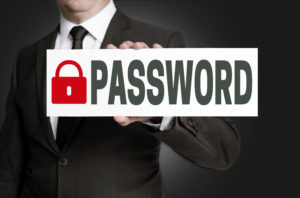It is often the case that science and technology gets ahead of the law and this trend has impacted the world of estate planning in a big way. Digital assets and electronic communication medium have been evolving since the emergence of the web and this has presented numerous legal challenges. So, this article is an overview of estate planning for digital assets in Florida and will address the various types of digital assets and the key steps needed to properly plan for their succession to heirs and beneficiaries.
As a bit of background, remember that a good Florida estate plan is comprehensive. It covers all important assets and leaves no uncertainty as to how the decedent’s affairs will be handled. A well-thought-out plan not only cuts down on the expense and complexity of administration, it also relieves much of the burden that would otherwise fall upon loved ones and significantly cuts down the risk of conflict among heirs.
To achieve these laudable objectives, you need a plan that addresses more than just the obvious, typical subjects. Distributing real estate, financial accounts, and valuable personal property is essential, but you also need to consider non-traditional assets. And, in the 21st Century world, digital assets have become an increasingly significant part of many estates.
While not everyone is familiar with the term “digital assets,” nearly everyone has them in one form or another. Sometimes, digital assets have serious financial value. Sometimes, their value is more sentimental or utilitarian. Either way, if you want a comprehensive estate plan that eases the administration process, you’ll need to account for digital assets.
What are Digital Assets?
Digital assets are property rights or interests that primarily exist virtually, especially on the internet. Social media, email, and website accounts are digital assets, as is a website itself if you own the domain. An estate’s digital property might include assets with obvious intrinsic value (such as online savings or investment accounts) and assets with value on a more theoretical level (like rewards points linked to an online account with an airline or rental car company). Cryptocurrencies like Bitcoin and Etherium are potentially valuable digital assets that raise unique estate planning concerns all their own.
Some intellectual property is digital. If you own a website with a valuable trademark or a YouTube channel with revenue-generating videos, you have digital assets that should be addressed within an estate plan. Or, a license to use someone else’s intellectual property (like a downloaded copy of a movie or music album) is a digital asset.
As with ordinary personal property, some digital assets don’t necessarily have readily apparent economic value but have enough sentimental value or utility to justify separate treatment within an estate plan. Email archives or family records, documents, or photographs maintained in cloud-based storage, for instance, might not have any market value but can still be tremendously important or useful to loved ones.
One of the chief difficulties digital assets raise in probate is that heirs are often not as familiar with an estate’s digital property as they are with more traditional assets like real estate or bank accounts. If a decedent had a highly valuable digital asset (say, a Bitcoin wallet), but nobody else knows about it, heirs won’t receive any benefit. To make sure all assets are recognized and the administration process runs as smoothly as possible, a well-crafted estate plan needs to provide a means of identifying digital assets.
Broad Types of Digital Assets
When, doing digital estate planning in Florida (like other states), it is important to recognize various kinds of digital assets which in general include:
-
-
-
-
Websites, Blogs or Vlogs (Video Blogs)
-
E-mail Accounts and Other Electronic Communications
-
Social Media Accounts
-
Digital Currencies such as Bitcoin
-
Photos and Documents Stored in the Cloud
-
-
-
The above list of assets certainly isn’t exclusive because as technology evolves, so do the various categories and types of digital assets continually change and invite new types and variations. If you’re a Personal Representative in Florida or a Florida Successor Trustee doing a Trust Administration, the thing to remember is that part of your initial investigation needs to be focused on obtaining passwords and identifying on line assets and accounts.
However, undertaking something like doing a probate in Florida is no easy task because in many ways opening a probate is like running a business AND doing the due diligence is difficult enough when it comes to conventional assets that are fairly easy to locate. Things get much more difficult for fiduciaries when it comes to digital assets for a few reasons, the chief of which involves privacy laws.

Privacy Concerns [Digital Assets and Electronic Communications]
If you’ve ever tried to access another person’s e-mail account, even with their permission and password, you may have encountered a series of hurdles to verify identity. These barriers continue to become more sophisticated and represent stringent privacy laws. Privacy concerns, the risk of a custodian of digital assets being sued for violating them have made it very difficult for 3rd parties to obtain necessary account information even with proper motives and documentation.
Why Include Digital Assets in an Estate Plan?
Given privacy concerns and other issues, digital assets have caused no small number of headaches for executors of estates. One of an executor’s first and most important duties is to track down all of a decedent’s assets. Digital assets, though, often don’t have a paper trail and might be unknown to anyone but the decedent. Even if friends and relatives know about digital assets, they might have no means of accessing them. Locating unknown passwords—or convincing website administrators to replace them—can be an exceptionally frustrating process.
As a general rule, websites are prohibited from disclosing personal information to third parties absent the express consent of the person to whom the information relates. Understandably wanting to avoid potential liability, most sites have strict policies against disclosure, often requiring a court order before they will provide a password or allow access to an account. Even if a decedent’s passwords can be located, family members may not be able to use them without written consent due to laws against unauthorized access of online information.
If an account owner’s consent is clearly documented, though, websites are in a much better position to comply with a request received from an heir or executor. By arranging all the necessary consents in advance, a digital estate plan facilitates access to online property.
And, of course, if digital assets have genuine financial value, including them in your estate plan lets you pass on that value (and any future revenue-generating potential) to the heir of your choosing—just like with traditional assets.
Simple Estate Planning Steps For Digital Assets
The goal of digital estate planning in Florida (and other states) is then to make the process of making it easier for the above referenced fiduciaries to access these accounts. Effective digital estate planning can be done in a few simple ways as follows:
- Providing a clear statement to authority and appointing someone to manage digital assets; AND
- Clearly identifying all digital assets on a personal property memorandum that is integrated by reference into the estate planning documents.
- Making sure that ancillary documents such as durable powers of attorney in Florida include the appropriate authority needed to access digital records and electronic communication.
Preparing a Digital Estate Plan in Florida
Though digital assets are distinct from tangible personal property, the overall planning process isn’t all that different. You first take an inventory—identifying all digital assets, estimating their value (if any), and organizing any associated usernames and passwords. Then you decide how each digital asset will be treated in your estate plan. This could mean, for example, bequeathing a revenue-generating website directly to an heir or instructing your executor to sell the domain and distribute the proceeds. If a site is particularly valuable, you might want to transfer it to a trust to be managed by a trustee familiar with the site’s operations.
The value of digital assets is often overlooked when planning for federal estate taxes in Florida and elsewhere. But, if a digital asset has market value at the time of a decedent’s death, it’s part of the taxable estate. An estate large enough to qualify for estate taxes will be taxed on that value, and, therefore, an estate tax strategy needs to consider potential tax liability arising from digital assets.
Whether or not a digital asset has market value, an estate plan should clearly identify who is permitted to access it. Access typically requires usernames and passwords, along with the owner’s consent. It might make sense to restrict access to the executor only. Or, you might prefer to allow access to a trusted family member. Username and password records should be kept secure during life but in a place where they can be retrieved after death—such as a safe deposit box. With cryptocurrency estate planning in particular, it is vital to arrange for eventual access by an heir. If the key to a cryptocurrency “wallet” cannot be located, the wealth it holds is effectively lost.
Once you decide what you want to do with digital assets and who will be able to access them, you will need to memorialize the plan within a written document. A digital estate plan can be incorporated within a trust or will, created as a codicil (i.e., amendment) to a will, or laid out in a personal property memorandum incorporated into a will or comparable estate-planning documents. In either case, the plan needs to comply with state-law requirements for end of life documents. It should identify all relevant digital property, provide clear distribution instructions, and be accompanied by a written statement granting a chosen delegee authority to access and manage digital assets. The delegation of authority may also need to be incorporated within ancillary estate planning documents, such as a durable power-of-attorney.
In states with statutes specifically addressing digital assets (like Florida), you’ll want to make sure the document complies with those laws. An experienced estate-planning attorney can provide advice on drafting a plan that does everything you need it to do and meets all legal requirements.
Legal Requirements for a Digital Estate Plan
A digital estate plan needs to take into account any relevant terms of service agreements (“TOS”), along with applicable state and federal law. A tech company’s TOS might prohibit or place limitations on transfer of property rights derived from or created using the company’s product or service.
Florida Fiduciary Access to Digital Assets Act
To address the privacy barriers and related legal concerns, legislatures across the country have been enacting laws to make it easier for fiduciaries to access on line accounts, Florida is among the large majority of states that have enacted legislation intended to facilitate fiduciary access to digital assets.
Florida’s statute, called the Florida Fiduciaries Access to Digital Assets Act (“FFADAA”), extends to estate administrators the same authority to manage digital assets that they have to manage traditional assets—but only if that authority has been expressly granted via a will, trust, or power of attorney. The law can supersede a tech company’s TOS—allowing the company to deal directly with a decedent’s appointed fiduciary without any risk of liability under federal anti-hacking statutes that protect privacy and guard against identity theft.
Importantly, the FFADAA’s precise requirements must be met to enjoy the law’s full benefits. A generally stated delegation of authority won’t satisfy the statute. An experienced Florida estate planning attorney familiar with the law’s framework can guide you in forming an estate plan that accounts for digital assets in a way that maximizes the ultimate benefits to your heirs and minimizes the procedural hurdles and expense of administration.
This kind of legislation is based upon a uniform act that is now being adopted by many states and accomplishes 2 purposes in general as follows:
-
Provides estate fiduciaries the legal authority to manage digital assets and electronic communication in the same way that they manage other tangible assets; AND
-
Provides the custodians of digital assets the authority to deal directly with the estate fiduciaries appointed by the deceased owners while honoring the user’s privacy expectations.
The practical effect of this new Florida law and similar legislation across the country is that it generally provides a forum to for individuals to plan out the authority of estate users to access digital assets. It does this by defining what kind of authority is needed and also provides immunity for the custodians of those assets if they are interacting with fiduciaries in good faith.
So, the takeaway from this article is twofold.
First, even with the above steps covered, hurdles remain concerning privacy and digital assets and legislatures across the country are responding. Thus it is critical to understand the importance of including your digital assets and electronic communications as an important part of your overall estate planning in Florida or wherever you are.
Second, if you’re considering an estate planning update checkup in Florida or elsewhere, be sure to include questions and planning concerning these assets and take the steps discussed above.
As a side note, this is so important that if your estate planning attorney in Florida or elsewhere has no knowledge of this area, consider locating another legal adviser.
Remember that as in most other estate planning matters, it is critical to stay proactive and be thorough when doing your planning and digital planning is now a major part of this process.
Steve Gibbs, Esq.




You must log in to post a comment. Log in now.